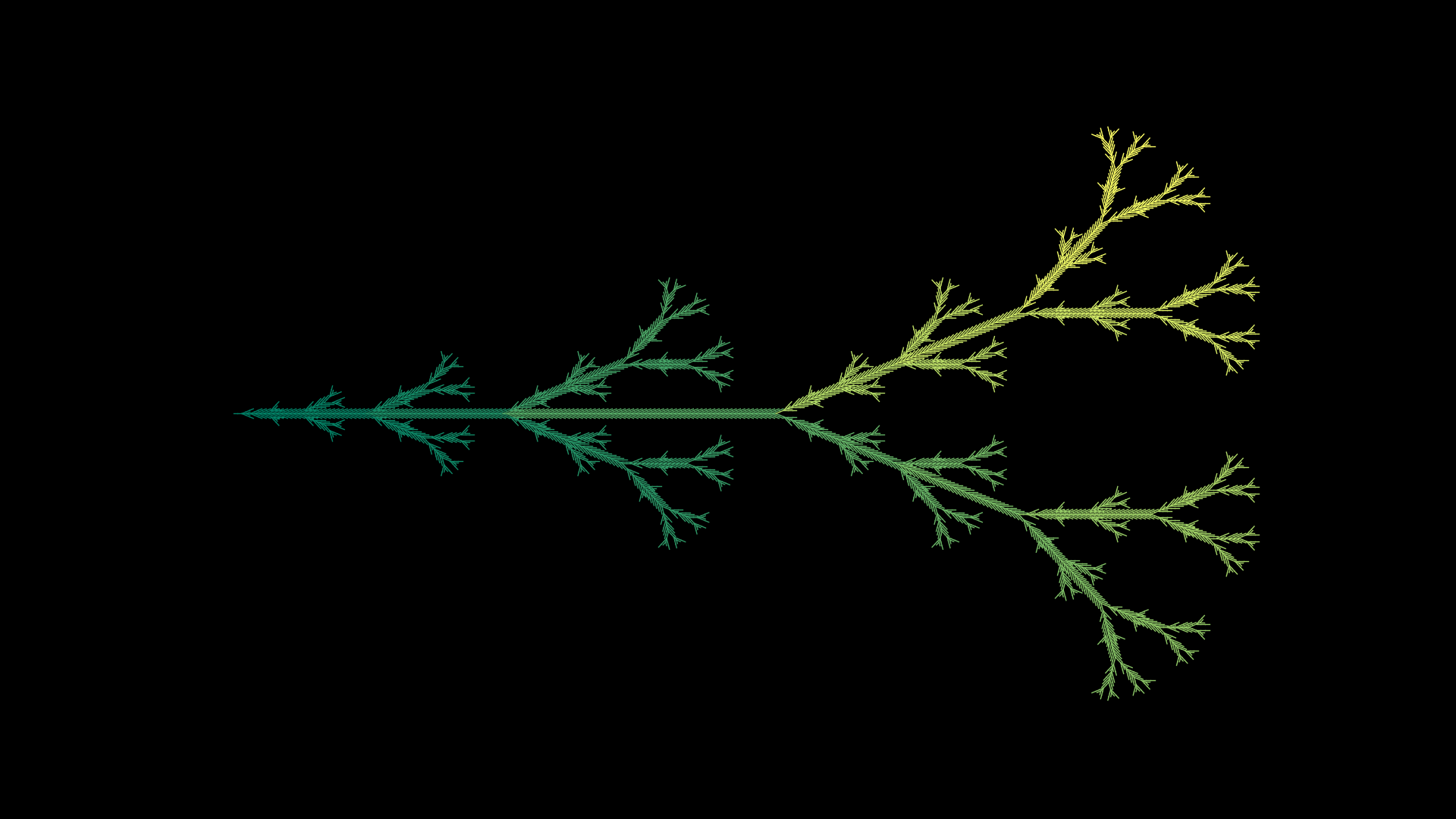Great tree,
your age is the number of iterations it took to generate you. You are a recursive fractal tree, generated via a L-system, and you have no life other than when you are generating or have stopped generated, at each step of generation your age being the number of iterations. Your age cannot be measure in human time scales like seconds, minutes, hours etc because it depends on the processor speed, generating speed etc etc etc (a lot of factors). But what remains as a valid invariant age for you is the number of iterations it takes to generate till some stage.
As you can perfectly see,
I'm a strange-looking tree.
Just a strange looking fern diagram using L-system
I grow over generations,
never suffering degradations.
L systems almost always grows and never removes. Same case here.
There's no trick, do not fret,
what you see is what you get.
Obviously there is no trick. it's just a finite character rewriting system following basic rules of formal language and grammar systems. And what is being drawn is what we get as a diagram, which is basically a mapping from a subset of the words of the language to a geometric movement.
I can go on and on, time permitting,
L-systems go on generating if not given an explicit stop condition like number of iterations and such. This is because it generates infinite sequences of words from the available words of the language.
but even I had a beginning.
All L-systems start from a axiom, which is basically a word from the language, to be modified via the derivation defined. Your start is $Y$ and derivation is $ {X → X[(-FFF)][(+FFF)]FX}{Y→YFX[(+Y)][(-Y)]}$.
How old am I?
6 iterations. Did the L-system myself xD. I am sorry.

